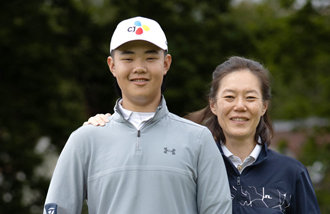Centrist Conservatives to Dominate Parliament
Centrist Conservatives to Dominate Parliament
Posted April. 15, 2008 03:08,
More than half of the winning candidates (52.3 percent or 116 persons) in the general elections last week say they are moderate conservatives, showing that the next National Assembly will swing more to the right than its predecessor.
The Dong-A Ilbo conducted a poll yesterday of 220 (73.6 percent) among the 299 election winners on their political stances. Seventy (31.5 percent) called themselves moderate progressives, 20 (nine percent) conservatives and three (1.4 percent) progressives.
In a poll conducted right after the 2004 general elections, 46.3 percent of winning candidates said they were moderate; 21.1 percent moderate conservative; 16.8 percent moderate progressive; 12.6 percent progressive; and 3.2 percent conservative. At the time, the ruling Uri Party had a parliamentary majority with 152 seats, while the main opposition Grand National Party had 121.
In this years survey, 137 lawmakers-elect (59.6 percent) cited the United States as the country to have the greatest impact on the Korean Peninsulas future, followed by 81 (35.2 percent) who said China. Only four (1.7 percent) picked Japan and none answered Russia.
In the 2004 poll, 52.3 percent cited the United States as being the most influential on Korea, followed by China (39.4 percent) and Japan (0.9 percent), suggesting U.S. importance as Koreas ally could slightly increase with the new National Assembly this year.
On the Korea-U.S. free trade agreement, 88 of those elected or 39.6 percent said the deal should be ratified in an extraordinary parliamentary session. Seventy-seven of the 88 were from the GNP.
Moreover, 74 or 33.3 percent said the agreement should be ratified by the National Assembly after coming up with institutional countermeasures for those who will suffer from the deal, 39 of whom were from the liberal United Democratic Party and 19 from the GNP.
Thirty-eight or 17.1 percent of the elected wanted the agreements ratification by the National Assembly by years end. Two of the three lawmakers-elect from the progressive Democratic Labor Party urged a complete renegotiation of the accord.
On forcing sex offenders to wear electronic tracking bracelets, the overwhelming majority 172 (78.2 percent) of the elected were in favor, while only 27 (12.3 percent) were opposed.
Switching to the death penalty, 100 (45.5 percent) were opposed to the abolition of capital punishment and 87 (39.5 percent) approved. While 68 of 118 respondents from the GNP were against the death penalty, 37 of 60 from the UDP were in favor.
On removing the ceiling on conglomerate investment, 122 (55.5 percent) said yes as opposed to 53 (24.1 percent) who said no. Eighty-eight GNP members were in favor of the lifting, while only seven in the party were against. By contrast, 33 from the UDP disapproved of the measure, compared with 13 who approved.
The phone poll surveyed 118 winning candidates from the GNP; 60 from the UDP; nine from the Liberty Forward Party; 10 from the Pro-Park Alliance, or a group of former GNP members loyal to former party leader Park Geun-hye; five pro-Park independents; three from the DLP; two from the Creative Korea Party; and 13 independents.







